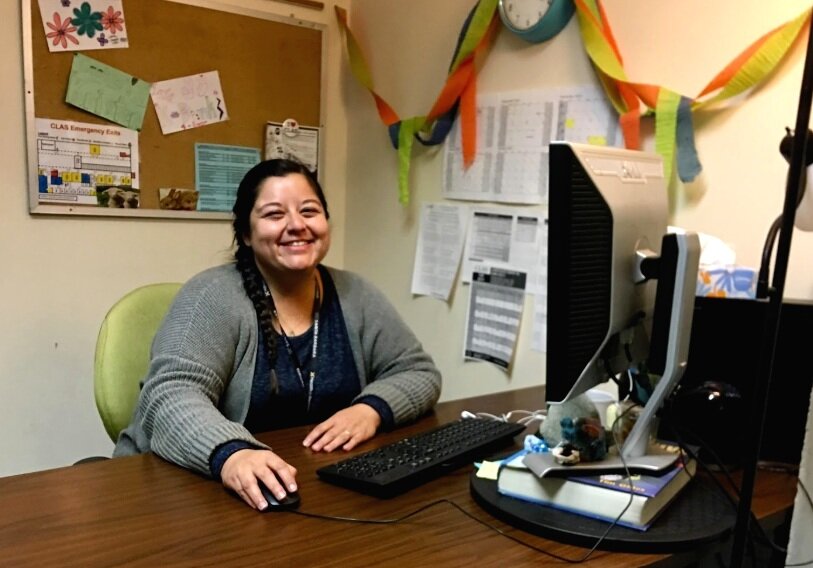By William Kang
The number of international students enrolled at UC Santa Barbara has nearly doubled over the past five years, bringing the campus to more than 3,600 international students from 79 different countries.
To serve this growing population, Kristen Dunkinson, the writing instructor at Campus Learning Assistance Services (CLAS), works specifically with international students whose first language is not English in order to help them with their writing. She has assisted students from places such as China, India, Japan, and Turkey.
Dunkinson holds a workshop series on writing skills and cultural communication every quarter for international students. She recently sat down for an interview to discuss her workshops and describe her work with students coming from different countries.
Q: What drew you to start working with international students?
A: I want to teach English to international students who are coming here because it’s a life skill they need and it’s something they struggle with. Having lived in Japan, and learning Japanese, I know how difficult and challenging it can be to not only learn another language, but also be immersed in it and have to use it.
I really try to help students to communicate and express their ideas, which I think are just human needs—to be able to express yourself. If you can’t do it in a way that makes you feel fulfilled, it can be frustrating. I just want them to feel like they can be themselves and trust other people without being judged or laughed at. So that’s why I love helping these students.
Q: Could you talk a little more about your workshop series?
A: I offer a workshop series every quarter with six different titles, three focusing on writing mechanics and three focusing on communication and cultural information. What I try to create in my workshops is a place where international students can express themselves without feeling like they’re going to be judged or penalized.
For example, I did a cooking workshop, but within that workshop I talked about food insecurity and what resources there are on campus and how much nutrition has an effect on the brain and learning. It’s not just about easy stuff like what they can cook at home and what foods we like, but connecting them to other resources and information.
Q: Is there anything that people should know about international students that may be misunderstood or overgeneralized?
A: I don’t think they get enough credit for the situations they put themselves in: flying thousands of miles to live by themselves in a place that they’ve probably never been before and speaking a language that they’re not used to speaking every day.
There can be a lot of issues when you take yourself out of your home and move somewhere else, which is something I really understand having experienced it myself moving to Japan. These students are taking themselves completely out of their comfort zone and going somewhere where they almost have no support system in place anymore.
Q: What can other students do to better understand their international peers?
A: It’s really important to try to understand the cultural differences because a lot of the people who travel internationally just want to make friends and learn about the culture. I’ve heard stories about students being made fun of for the way they talk or act, so being sensitive to someone’s cultural differences is really important.
It’s just about trying to stop generalizing who they are and how they behave, because we have around 80 cultures represented here. Everyone’s coming from a different place with different backgrounds so we have to be mindful of that.
Q: What can we do better to cater to international students?
A: A lot of professors and people on campus are trying their best and really care about the work that they do for international students. But people are working alone, so what we can do as a campus is come and talk about our work together. I found that resources were really hard to find unless somebody I knew told me about them, so I think it would be good if we had a single place to find all of the resources on campus.
Q: If you address the international student population on campus, what would you say?
A: There are a lot of people on campus that do care and want to help and have resources that will help them succeed. The more students use those resources, the more we’ll know that they need them. Utilizing these departments will help them grow faster and gain attention from the campus. I want people to feel comfortable and know that we’re prepared and ready to help them.
William Kang is a fourth-year UC Santa Barbara student majoring in English and minoring in Writing.


